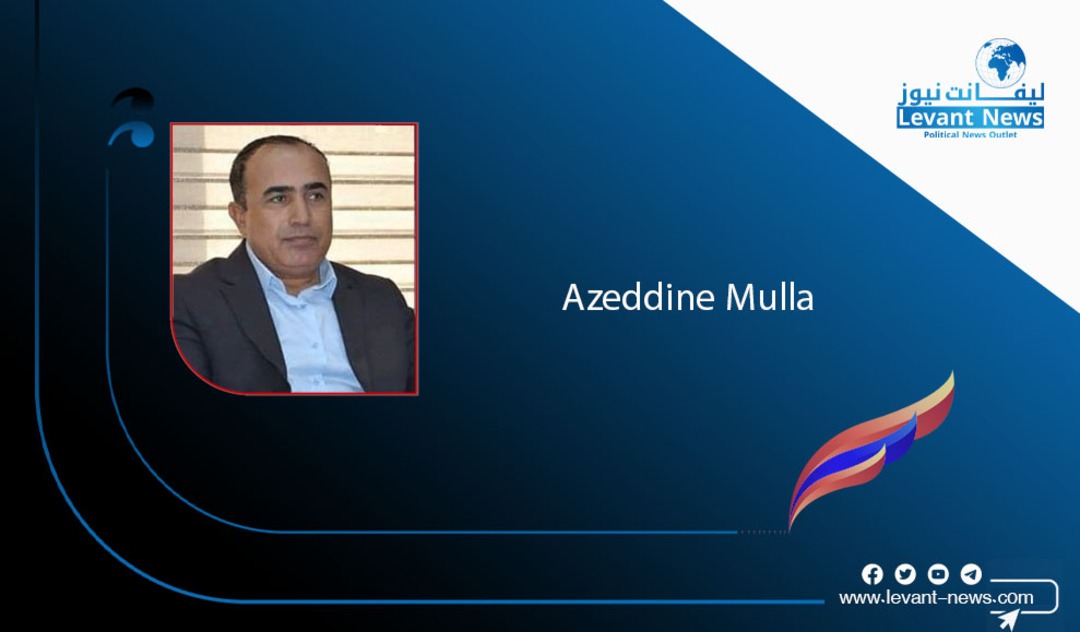-
From Qamishli: Turning Dreams into Projects and Barzani's Call Unites the Path

Amid the ever-growing rubble of Syria, where maps are redrawn, projects collide, and agendas clash, it has become difficult to see the contours of the homeland through this dust. Syria, which has turned into an open arena for testing the balances of regional and international power, is experiencing a political genetic reshaping unlike any phase it has undergone since independence. Everything is being re-produced on new foundations: loyalty, belonging, identity, and decision-making.
In this troubled scene, the Kurds in Syria are returning to the forefront not merely as victims nor as a minority seeking scraps of rights, but as an integral component with its own narrative, deep history, extended grievances, and a serious desire to shape a new future that accommodates both themselves and others. The Kurds do not seek separation nor do they present themselves as an alternative; they only wish to be part of a whole, provided that this whole does not dissolve or swallow them as it has in the past.
The collective Kurdish vision announced in Qamishli did not arise as a reaction to an immediate event, nor as an attempt to seize a fleeting political moment. Rather, it is the result of a long accumulation of pain, awareness, and waiting. It is not just a political document but a condensation of everything the Kurds have carried in terms of disappointments and dreams since the Sykes-Picot Agreement drew the map of the region at their expense. In this vision, the maturity of the Kurdish moment is evident, as Kurdish factions, despite their previous divisions, decided to take a step forward towards unity after realizing that their deadliest enemies were not only the regime but also division, retreat, and loyalty to entities rather than to the cause.
Here, the pivotal role of President Masoud Barzani cannot be overlooked. He, as a Kurdish leader, is no stranger to the suffering of the Kurds in Syria, nor is he distanced from their dream of being true partners in the Syrian homeland, not merely guests on their land. Barzani played the role of a national patron in its most delicate expression, urgently urging the Kurdish parties in Syria to overcome doubts and divisions, and to work towards forming a unified vision directed towards Damascus, not as a center of power but as a decision-making hub legitimizing rights and as a gateway to establishing the Kurdish presence in the new Syrian constitution.
Barzani's call was more than just a political stance. It was a gentle and wise national awakening, reminding everyone that the Kurds in Syria will not secure their rightful place unless they speak with one voice and move towards a unifying national agenda. Barzani did not push for a unified vision out of impulsive nationalism but from a historical wisdom that taught him that rights can only be seized through a united will, and that the world listens to those who speak in unity, not to those who shout in disarray.
This transformation did not come from nowhere. The Kurds have fought long political and military battles, experiencing varying degrees of marginalization and understanding the extent of the regional challenges facing their aspirations. Whenever they attempted to raise their voices, Ankara responded by hovering through the skies, Tehran whispered in ears, and Damascus waved the conditional nationalism card. Nonetheless, the Kurdish will has proven to be resilient, demonstrating that despite bloodshed and setbacks, it knows how to reorder itself when the time is right.
However, strength alone is not what the Kurdish vision needs today; it requires wisdom—the wisdom to read the Syrian moment with all its fragility and the wisdom to understand that rights are not only obtained through loud voices but also through smart negotiations. The Kurds need a policy of delicate balances that aligns national aspirations with openness, balances cultural specificity with general belonging, and balances political realism with legitimate dreams. A vision cannot succeed if it closes in on itself, nor can it convince others if it does not reassure them.
What complicates the situation further is that each regional party views the Kurdish issue through a lens of suspicion. Turkey sees any Kurdish empowerment as a nucleus of threat to national security, Iran fears a nationalist contagion that might transfer to its own Kurds, and even Israel, which surreptitiously supports some Kurdish forces, does so not for the sake of rights but in pursuit of its own interests. As for international powers, they view the Kurds through a lens of pragmatism rather than principles; they support them when they need them and abandon them when circumstances change.
Despite all this, the Kurdish vision has the potential to make a difference if it succeeds in turning the dream into a national project. A project that asserts that Syria will not be just if it continues to be governed by an exclusionary mindset, and that building a new state requires a social contract that recognizes diversity, enshrines equality, and redefines Syrian identity not as a narrow nationality but as a geography that unifies diverse identities. Reconstructing Syria requires true partnership.
Aziz al-Din Mala
Tags
You May Also Like
Popular Posts
Caricature
opinion
Report
ads
Newsletter
Subscribe to our mailing list to get the new updates!




















